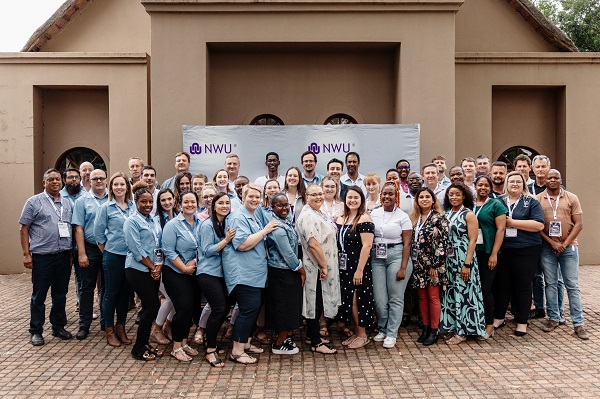On 29 and 30 November 2023, the Occupational Hygiene and Health Research Initiative (OHHRI) of the Faculty of Health Sciences at the North-West University (NWU) hosted a workshop to share knowledge and best practices regarding the use of direct-reading methodologies and sensors in occupational hygiene. Themed "The changing landscape of occupational hygiene: Challenges and opportunities presented by real-time exposure data", the event brought together 50 professionals, including international representatives, government bodies, universities and industry experts.
By focusing on direct-reading methodologies, the workshop explored the opportunities and challenges presented by real-time exposure data to be used for risk assessment, monitoring and, hopefully in the future, compliance with legislative standards. One of the key takeaways was the critical role real-time monitoring can play in determining exposure to various stressors in the workplace, since it can provide data faster than conventional methods and, in many cases, immediately.
While exposure to various stressors in the workplace is driven by compliance with legislation, the vast data sets generated by real-time monitoring emerged as a potent tool for comprehensive risk assessment. These data sets can contribute to the real-time exposure assessment to enable better protection of workers’ health. One significant outcome of the workshop was the establishment of a working group to investigate the practical implementation of real-time monitoring methods in the industry, including legislative reform. This initiative emphasises the importance of communication and collaboration between researchers and industry stakeholders to move the field forward.
Importantly, the workshop raised awareness about the pressing need for more occupational hygienists in South Africa. It stressed the importance of providing training on real-time monitoring methods for both students and industry professionals. As real-time monitoring methods are not yet embedded in legislative policies, the workshop highlighted the urgency of training the next generation of professionals in these innovative approaches.
The workshop also served as a platform to showcase the NWU's leadership in occupational hygiene education and research. A tour of the facility on the Potchefstroom Campus provided stakeholders with insights into the state-of-the-art equipment and facilities used for teaching and research methodologies. The NWU is the only university in South Africa offering a research Master of Health Sciences (MHSc) in Occupational Hygiene, along with a four-year professional Bachelor of Health degree, which testifies to the university’s commitment to advancing the field and nurturing future leaders.
To conclude, real-time monitoring is emerging as the future frontier in workplace health and safety. Although the methods are not yet embedded in legislation, they play a crucial role in real-time exposure assessment and ultimately contribute to the enhanced protection of worker health.
Overall, this was a successful workshop with engaging discussions, collaborative initiatives and a shared vision for the future of occupational hygiene. The NWU's Faculty of Health Sciences, through the OHHRI and the subject group Occupational Hygiene (School of Physiology, Nutrition and Consumer Science), will continue to drive innovation and excellence in workplace health and safety. In addition, as the industry moves towards embracing real-time monitoring, we will strive to remain at the forefront, shaping the next generation of occupational hygienists and contributing to a safer and healthier work environment for all.

Professionals, including international representatives, government bodies, universities and industry experts attended the workshop.
